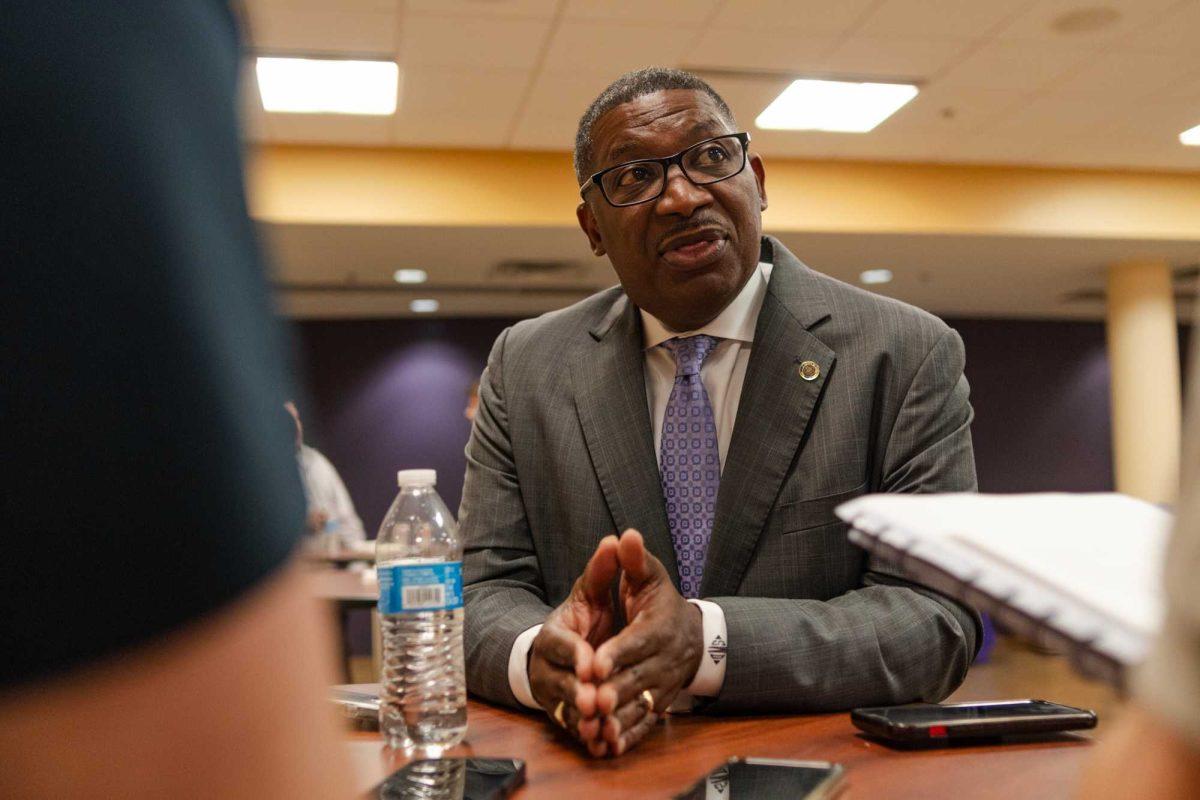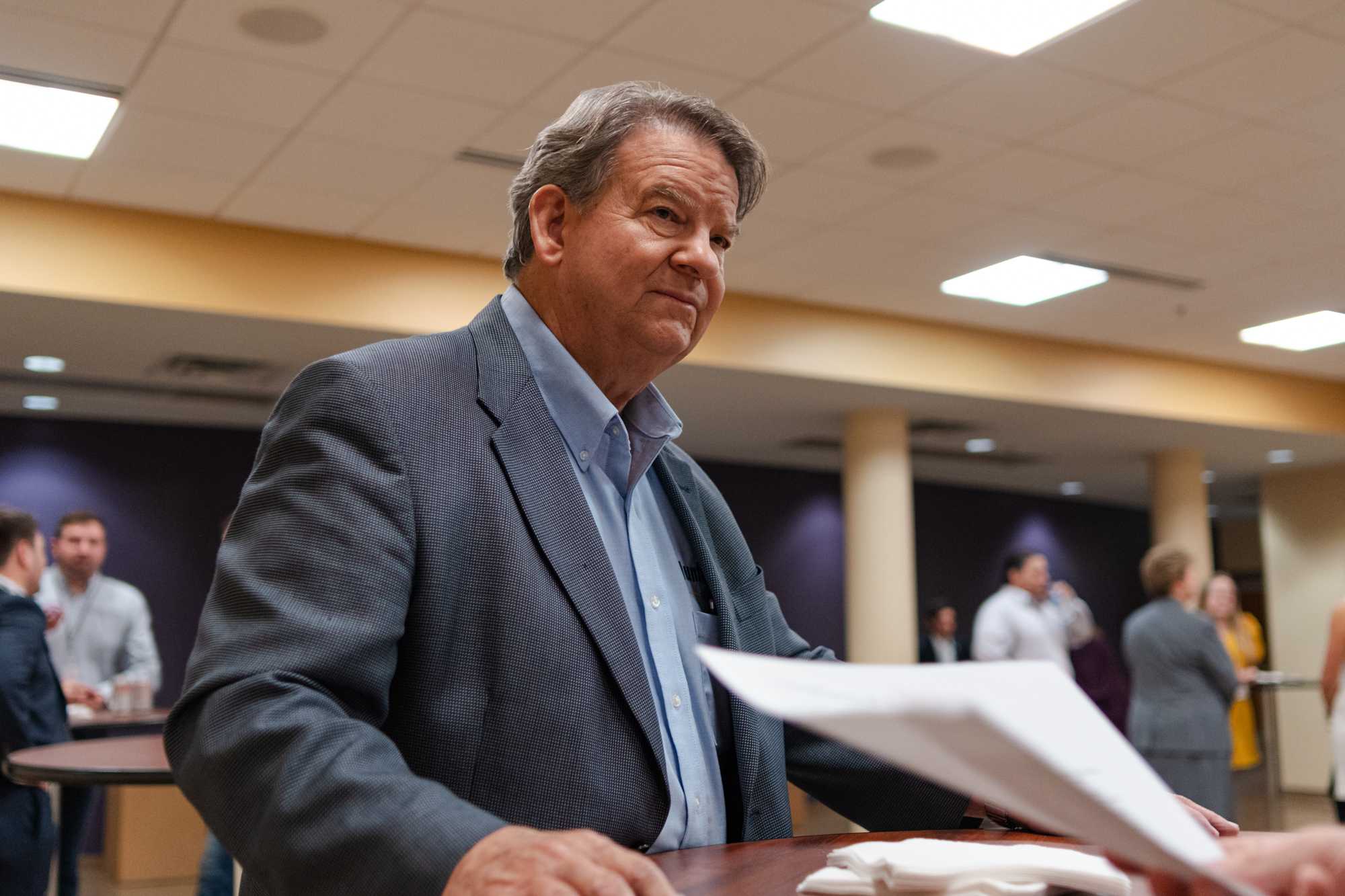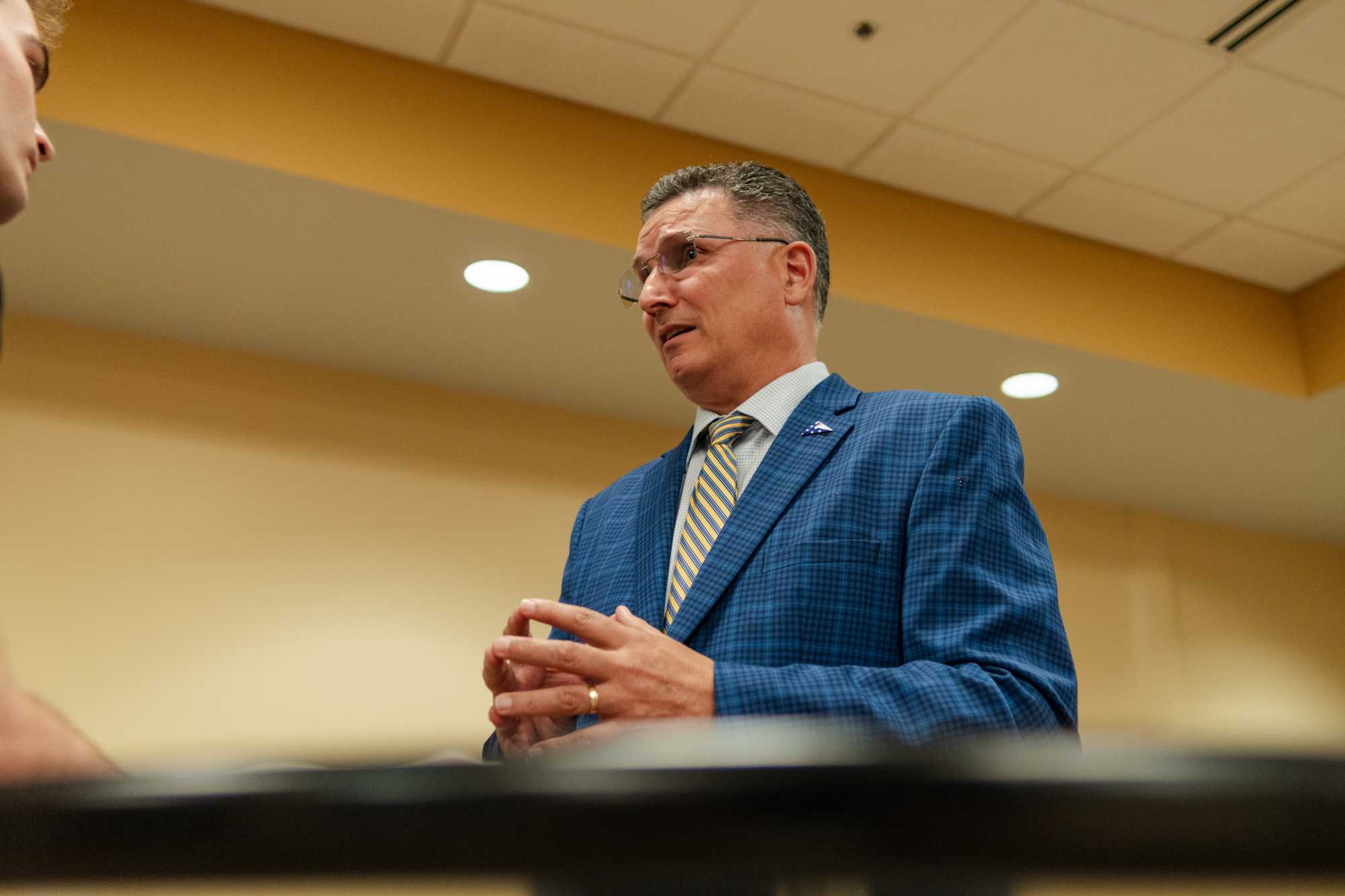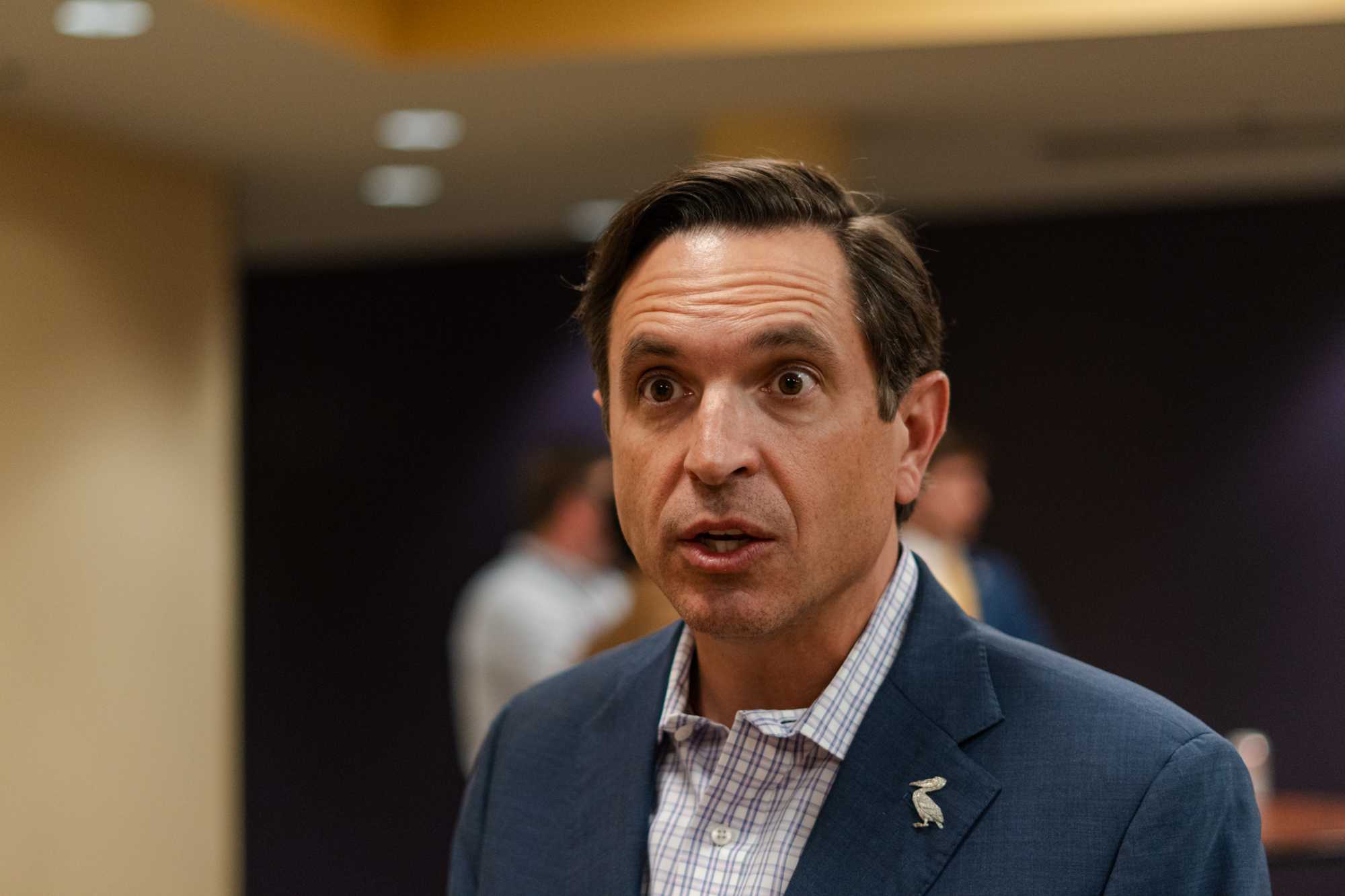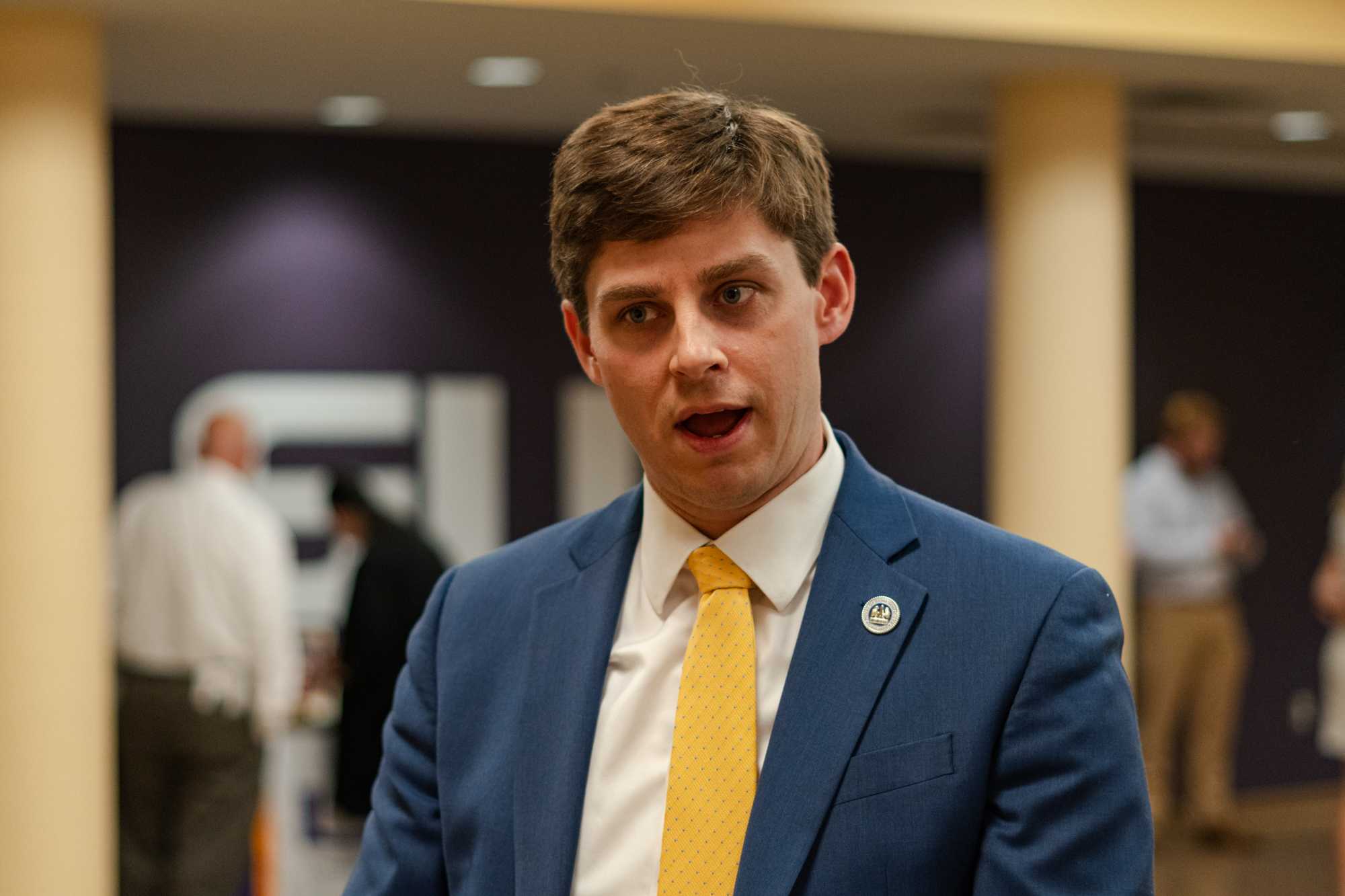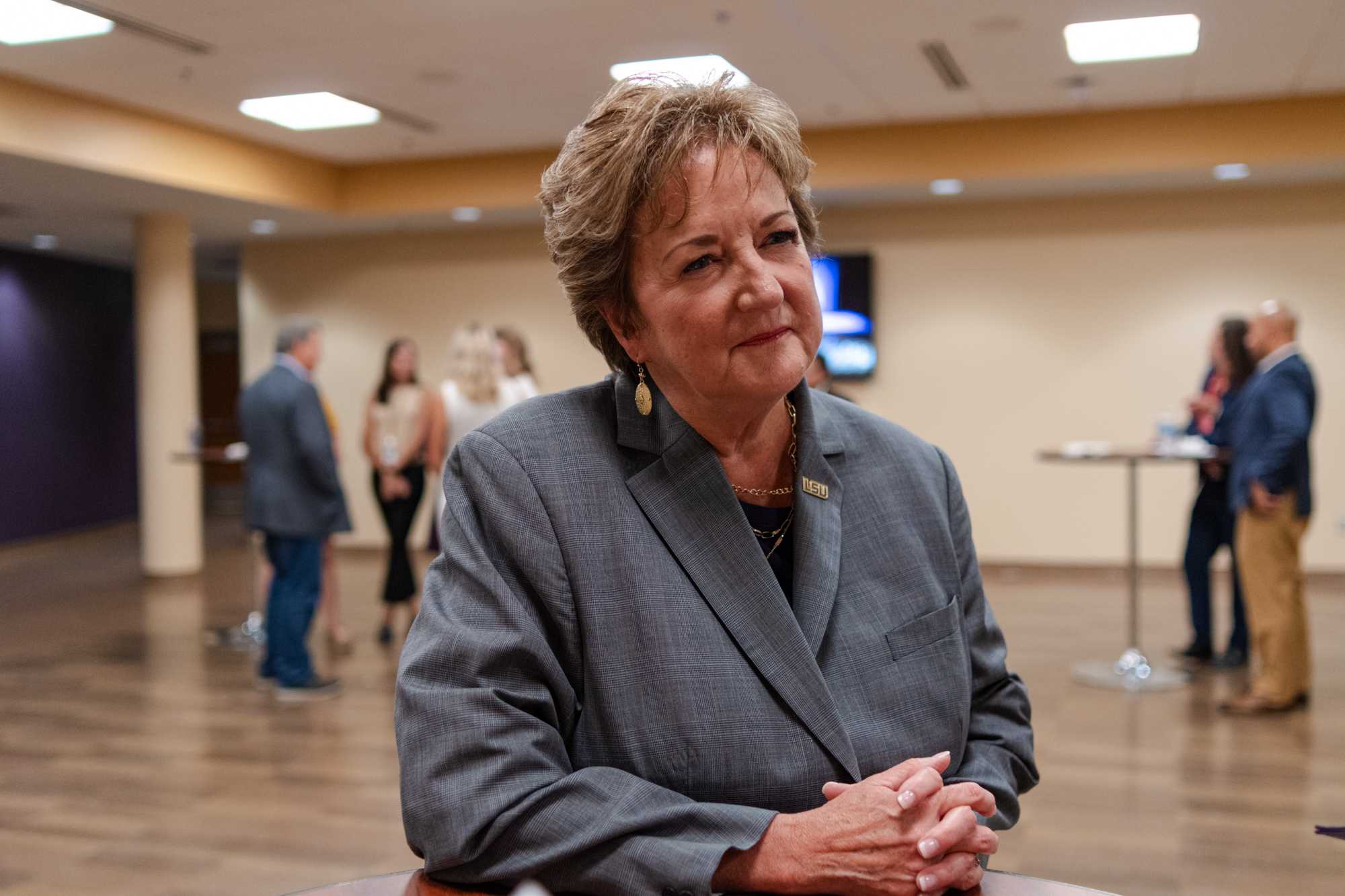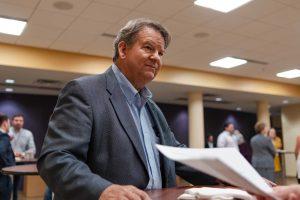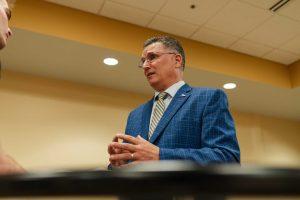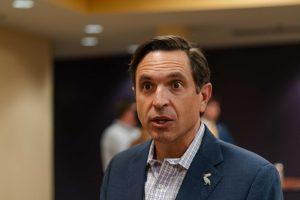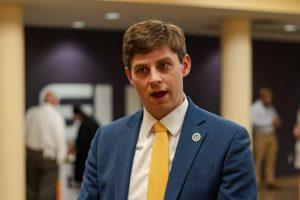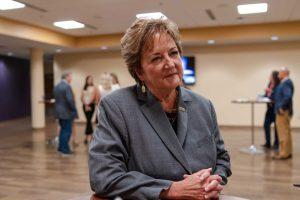Six governor hopefuls took the stage at LSU’s Student Union for a forum Wednesday evening to share their vision for higher education in Louisiana. Before the event, Reveille reporters conducted exclusive interviews with the candidates.
They touched on whether the state prioritizes athletics over academics, if they would change academic tenure, how they would appoint LSU Board of Supervisors’ members and why college students should come out to vote for them in the primary on Oct. 14.
The candidates included four Republicans: state Sen. Sharon Hewitt of Slidell, state Treasurer John Schroder, former business lobby head Stephen Waguespack and state Rep. Richard Nelson of Mandeville. Also participating were trial lawyer Hunter Lundy, a political independent, and former state Transportation Secretary Shawn Wilson, a Democrat.
Attorney General Jeff Landry, a Republican who leads in the polls, didn’t come to the forum. He has frequently skipped campaign stops that involve sharing a stage with the other candidates.
“Jeff Landry will be in Bossier tonight for an event with Donald Trump Jr.,” said Kate Kelly, Landry’s campaign spokesperson, in a statement to the Reveille. “He looks forward to talking about the issues with folks this Friday during Nexstar’s statewide debate.”
Tenure and DEI
Candidates generally said they would avoid meddling in university policies including academic tenure and diversity, equity and inclusion programs. Efforts to restrict such practices have cropped up in Louisiana and other states.
“The very nature of a university indicates the value of diversity,” Wilson said. “It indicates the value of equity and inclusion because education is designed to do that.”
Nelson called efforts to ban DEI programs “heavy handed” and that the government should “let universities make their own decisions.”
Waguespack echoed that, saying it’s “slippery slope when government starts mandating … some of those things.”
Schroder said he’s “not hardcore against anything.”
“I’m as diversified as anybody,” he said. “You know, we’re all born from the same drop of blood, right? So we got to love each other and try to get along with each other.”
Lundy said he would need to first see any legislation relating to DEI programs before deciding, but “without seeing it, I would say oppose.”
READ MORE: Heat death toll climbs to 32 in Louisiana, shattering average amid state emergency
Hewitt said “we have much bigger issues that we need to be focusing on in the Legislature.”
On tenure, she said “sometimes you have professors that have maybe been there too long, you know and so it would be nice to be able to kind of bring in some new blood.” But she said she understands the point behind tenure, that professors aren’t subject to the whims of changing political leaders.
Waguespack said he’s an “open book” on tenure and that he’s open to doing whatever is best for recruiting professors.
Wilson, who has a doctorate degree, said he supports tenure and found his tenured professors were more invested in Louisiana and in him.
Lundy, whose mother was a college professor and whose daughter teaches at a community college, again said he would have to see the legislation, but that he “supports academics.”
Schroder said he would keep his nose out of it as governor.
“I think the governor needs to get out of the higher ed business,” Schroder said. “…We need to sort of remove ourselves some from the campuses, from the Capitol standpoint, and let higher ed run its campus.”
Appointing the LSU Board of Supervisors
The governor appoints members to the LSU Board of Supervisors and other higher education boards. Candidates generally told the Reveille that they would value a variety of professional backgrounds in their appointments.
Several of them said pointedly they would ensure the appointments aren’t motivated by self-interest.
Schroder said he would appoint “people who aren’t looking to enrich themselves, people who want to truly have … a board seat without overstepping their boundaries.
“None of my board appointees are going to overstep their boundary. They’re not here to run the university, right? They’re not,” he said. “They’re not here to get involved in the day-to-day operations of the hiring of the coaches, teachers.”
Such backroom deals have made national headlines. The Chronicle of Higher Education reported in 2021 that former LSU President F. King Alexander said members of the LSU board instructed him in April 2019 to fire Joe Alleva, the athletic director at the time, and replace him with Scott Woodward. One of the members even wrote on a napkin the salary he wanted Woodward to be paid, according to Alexander.
Waguespack said he would make sure his board appointments “do not view this as just an all-access pass to hang out in locker rooms.” He said the board is not “meant to be a club to hang out at sporting events.”
He voiced his support of LSU President William F. Tate IV and his “scholarship first” agenda in an interview with the Reveille and during the forum. He said he would focus on board appointments, with both public and private sector experience, who would help accomplish Tate’s plans.
Wilson said “it’s not just about campaign contributions, it’s really about the expertise” when it comes to board members. He said a background in education is not necessarily a requirement for board appointments “because we don’t hire a board to micromanage.”
Nelson, who studied biological engineering at LSU, said he would value candidates with a background in science, math and technology.
Did Brian Kelly get it right on LSU’s priorities?
Brian Kelly, LSU’s head football coach, raised eyebrows with comments he made in a recent ESPN interview suggesting the priorities at LSU were different than they were at his previous institution, the University of Notre Dame.
“There are priorities at Notre Dame,” Kelly said. “The architectural building needed to get built first. They ain’t building the architectural building here first. We’re building the athletic training facility first.”
Kelly later told the Louisiana Illuminator his comments were mischaracterized and that he came to LSU, in part, for its strong academics.
The Reveille asked candidates for their reaction to the coach’s comments and whether those who say the state puts athletics over academics are justified.
“Coach Kelly nailed it, man,” Nelson said. “I think that’s why … the reaction was what it was, is that everybody … feels that same way.”
Nelson said that when he was an LSU student, he saw rat infestations in the facilities and leaking roofs.
“We can be good at football and good at academics,” he said. “And I think that you really have to focus on that, though. It’s not going to happen on accident.”
Waguespack, who went to LSU and lives close to the campus, said LSU has already struck that balance.
“The truth is we’re a healthy mix here at LSU, and I think that’s a good thing that we need to sell to the rest of the country,” he said.
READ MORE: Kim Mulkey signs contract extension, becomes highest-paid women’s college basketball coach
Lundy said he would want to see the numbers before he made a judgment, but that it’s important university facilities are taken care of and teachers are paid properly.
“I’ve been over at the coffee shop here and listening to professors and not getting paid what they deserve to be paid,” he said. “So we gotta focus on academics. We gotta focus on maintenance. We got buildings not just here, but all over the state with the [University of Louisiana] system that need repairs.”
Why should college students vote for you?
Young voters are often tagged as politically disinterested, but the candidates made their case for why LSU students should come out to vote for them in the Oct. 14 primary.
If no candidate gets more than 50% of the vote that day, there will be a general election between the top two vote-getters on Nov. 18.
“It’s time that Louisianians elect the CEO to be the governor of this state and get out all the politics and the cronyism,” said Schroder, highlighting his 32 years in business. “Corruption — this pay-to-play attitude — has infected the state and infected your campus.”
Hewitt, an LSU alumna, said she has one son in Seattle, Washington, and another in New York City—about as far as they could be from their hometown of Slidell.
“The real reason I’m running for governor is because I want to give families a reason to come to Louisiana and stay in Louisiana,” she said.
Waguespack, too, focused his pitch on making the state where people want to stay by increasing job opportunities and quality of life.
“If you elect a guy like me, I’m going to want to create an environment where everyone wants to grow old,” he said.
Lundy, the lone independent in the race, said he’s not beholden to any political party. He said his “heart’s in education,” and he would put priority on that as governor.
Nelson, 37, pointed out that he was the youngest person in the race. He said he’s lived a lot of the battles that students fight everyday. And he flexed that he tried to legalize recreational cannabis, “which I think is probably pretty popular among most younger people.”
Wilson traced his leadership back to his university days, including a tenure as study-body president at what is now the University of Louisiana at Lafayette.
“You have to focus on the students because they are our future,” Wilson said. “And so you’re looking at someone who understands that academic experience, understands the student experience and is committed to doing just that.”
Lauren Madden contributed to this report.


